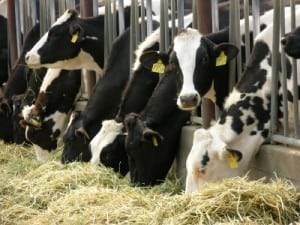 Mohamed Abd El-Wahab had never given a passing thought to halal certification.
Mohamed Abd El-Wahab had never given a passing thought to halal certification.
‘I have worked in the food industry all my life. In Egypt nobody is interested in halal certificates,’ said Abd El-Wahab, Export Manager of the Greenland Group for Food Industries. ‘Egyptian food is by definition halal.’
That was two years ago. Since Abd El-Wahab’s participation in ITC’s Enhancing Arab Capacity for Trade (EnACT) programme, Greenland has quadrupled its sales to Malaysia, a country that operates one of the strictest halal labelling schemes in the world. It has also found several new markets, including Azerbaijan, Indonesia and Singapore. Sales of halal-labelled products now make up a quarter of the exports of Greenland, which is Egypt’s largest dairy company. ‘This growth is all thanks to certification,’ Abd El-Wahab said.
‘Once producers are certified, halal labelling turns from a technical obstacle to a trade enhancer,’ said Sadiq Syed, ITC’s focal point on the halal sector.
ITC and its Egyptian counterparts identified Malaysia as a beachhead in the Asian market for Egypt’s processed food exports because of its transparent and rigorous halal labelling and certification regime, which is recognized in many other countries, Syed said.
Egypt had traditionally exported halal products to North American and European markets, which – while growing – are much smaller than markets in South Asia, Southeast Asia and the Middle East. It is estimated that there are over 1.7 billion customers for halal products worldwide, an increasing number of them middle class with growing purchasing power.
Yet Egyptian exporters have secured only a small share of the Asian halal market so far, due in part to a lack of halal certification, branding and packaging.
The Egyptian food processing sector strengthened its presence in the Malaysian market following the ITC project, increasing exports by 30% since 2011, according to figures from the country’s Food Export Council.
‘This is just the start,’ said Manal Karim, the Food Export Council’s Executive Director.
‘We expect that an increasing number of food processers will succeed in the market in Malaysia and the wider region following halal certification.’
Halal certification to the fore
As part of the project, a new halal unit was established at the , supporting the development of an increased halal-certified export base. The number of halal-certified companies more than doubled from 21 to 52.
In October 2012, ITC brought together over 120 food-processing companies at the Cairo Halal Forum and invited specialists from Malaysia and Turkey to share best practices in audit and certification processes.
Halal dietary guidelines are not limited to meat products. They include other processed foods such as confections, snacks, beverages and chocolates, which could contain non halal ingredients like pork-based gelatin. The use of alcohol during the production process also renders products non-halal. ‘Certifying and branding their products as halal is an important marketing tool and enables Egyptian companies to capture new markets,’ said ITC’s Syed.
Seven of the enterprises participated in a study tour to Malaysia, where they visited food processing companies and met with potential clients. Several companies, like Greenland, were able to address issues with labelling, production, storage and distribution that were limiting their sales to Malaysia, and they have subsequently seen their exports grow.
As part of the EnACT programme, ITC also assisted Egypt in identifying burdensome non tariff measures faced by the country’s exporters and importers, developing an electronic commerce strategy and enhancing the competency of a network of trade support institutions in logistics and export quality management.
Building on the success of the Egyptian project, ITC’s new Export Development for Employment Creation, also financed by Canada, is exploring sales opportunities for halal exporters from Morocco. ITC facilitated the conclusion of a cooperation agreement between the Moroccan Exporters Association and the SME Association Malaysia to promote trade between the two countries.
‘Malaysia could be a platform for Moroccan products in ASEAN,’ said Mohammed Essaber, who heads the Export Support Division at Morocco’s Ministry of Foreign Trade. As part of the project, earlier this year Moroccan food exporters participated for the first tim in the Malaysia International Halal Showcase (MIHAS), one of the largest international halal food fairs.



